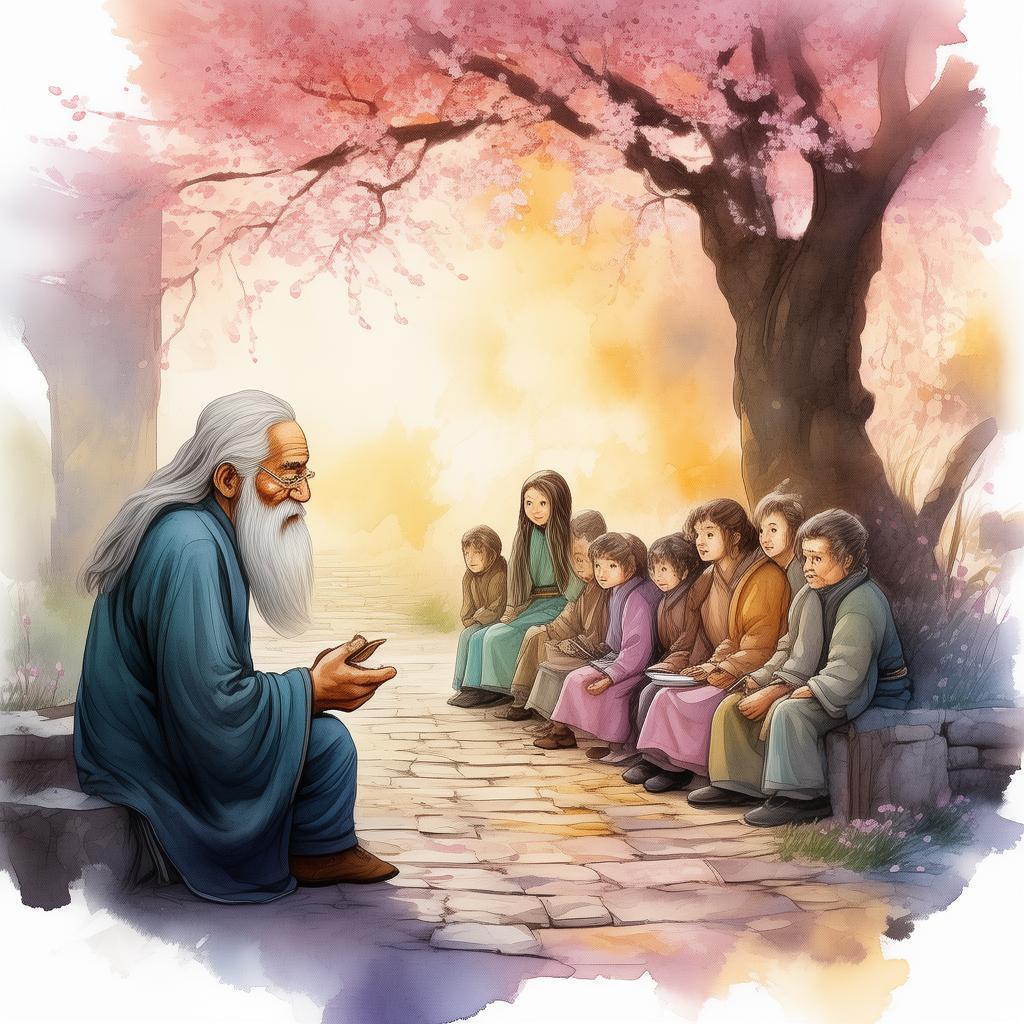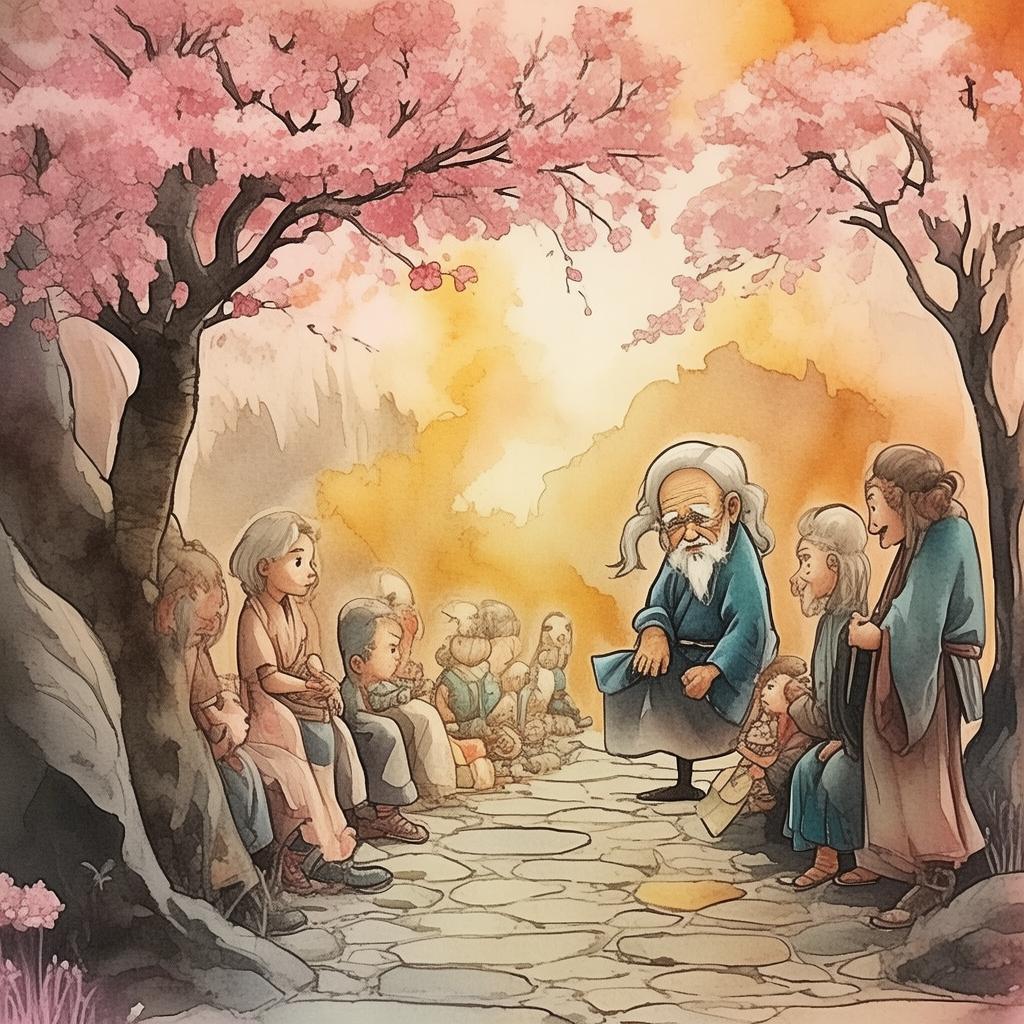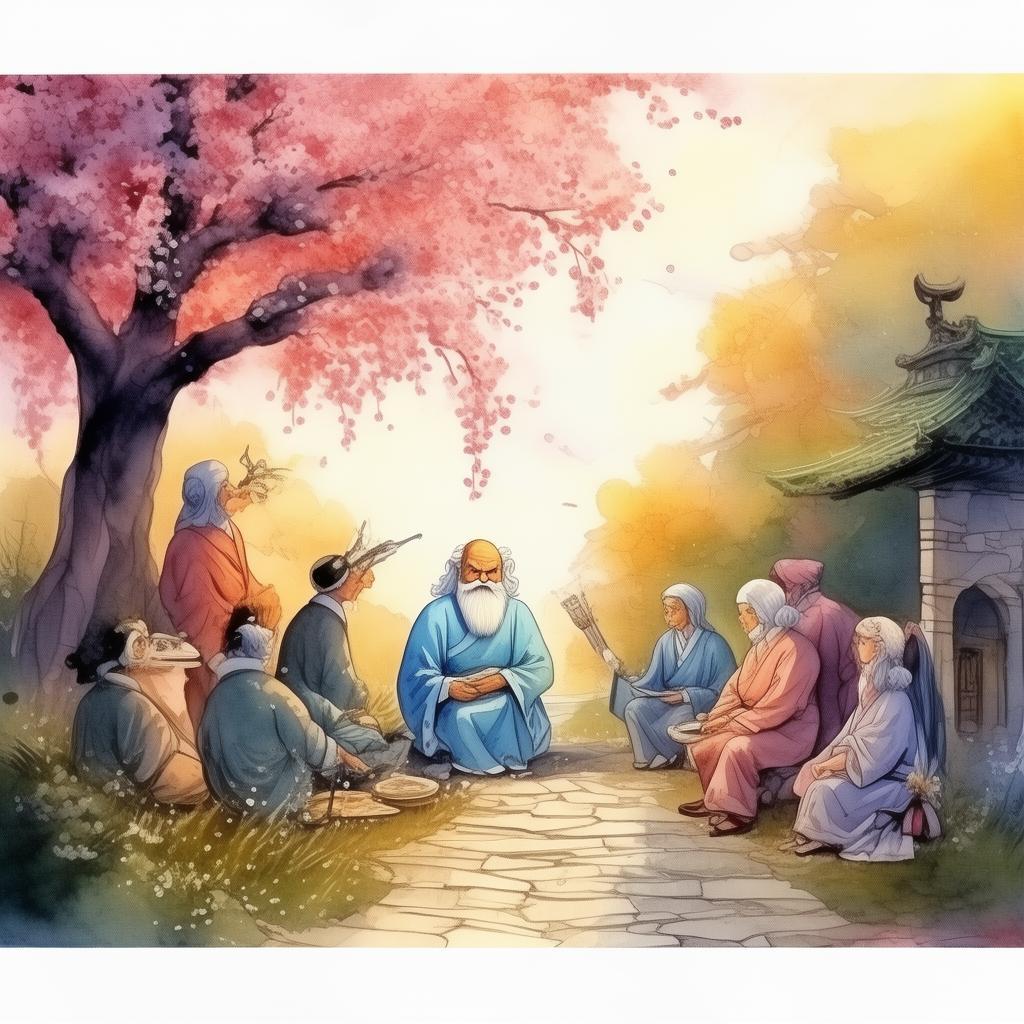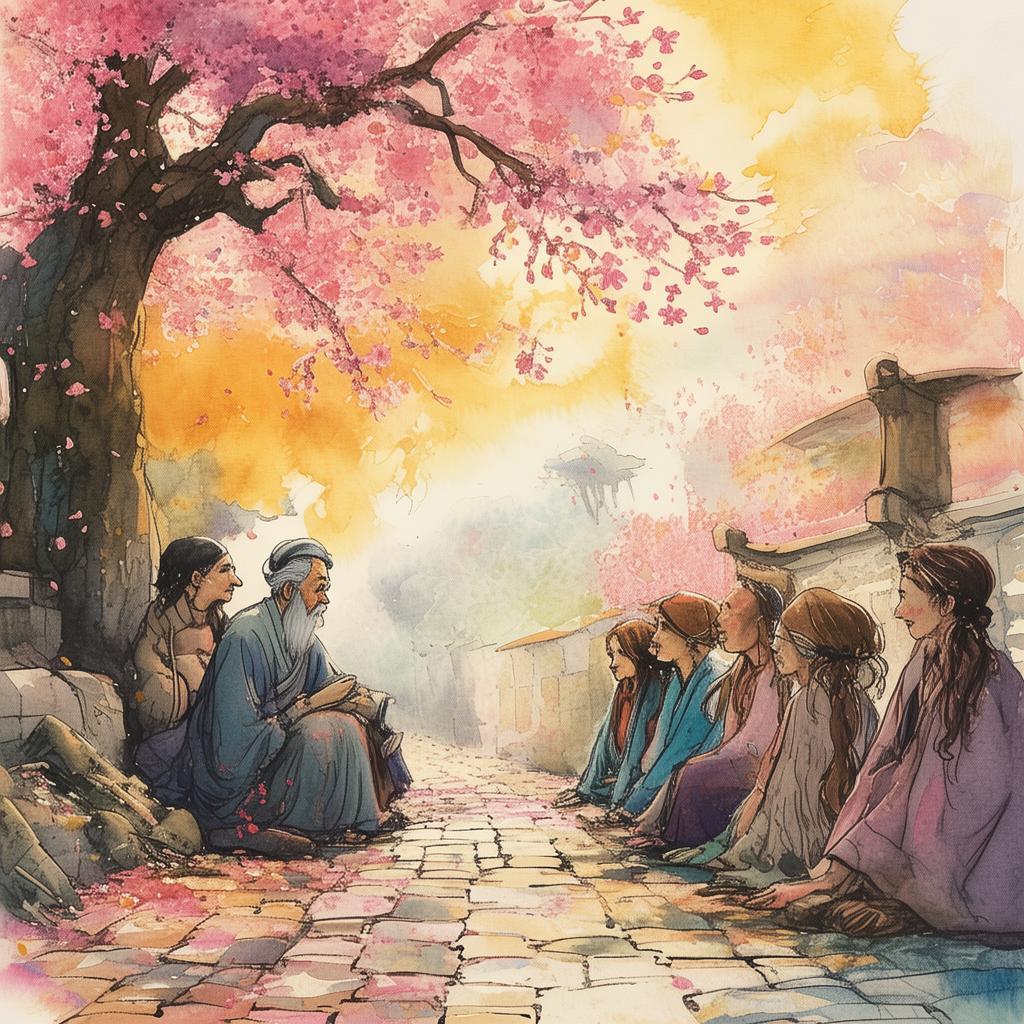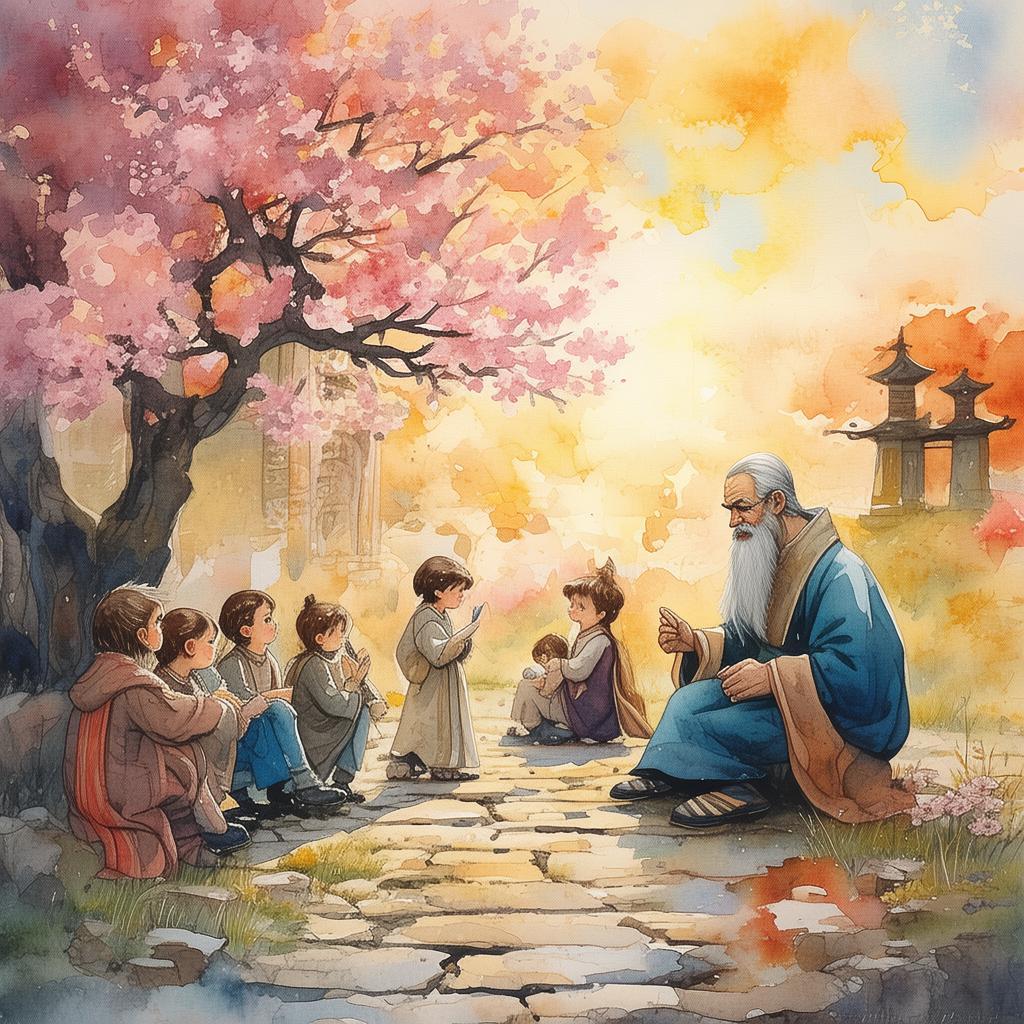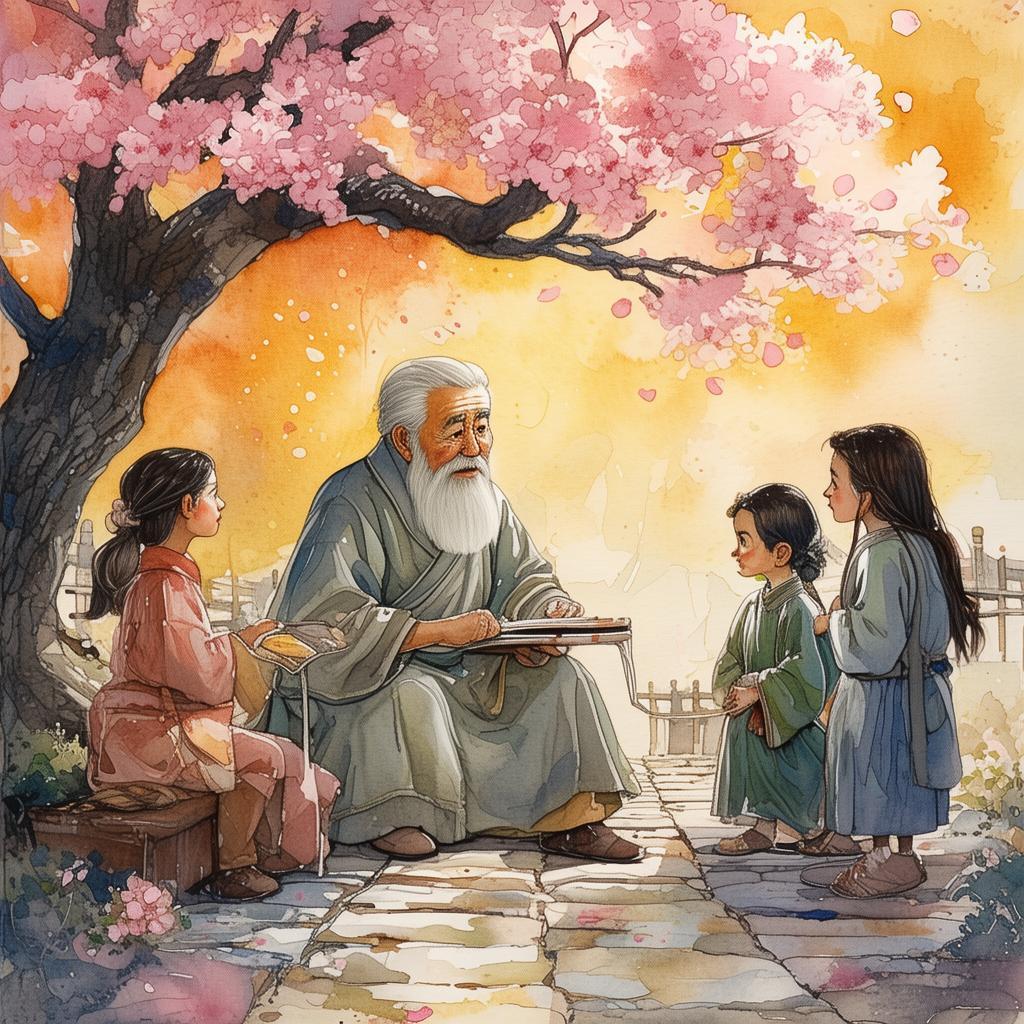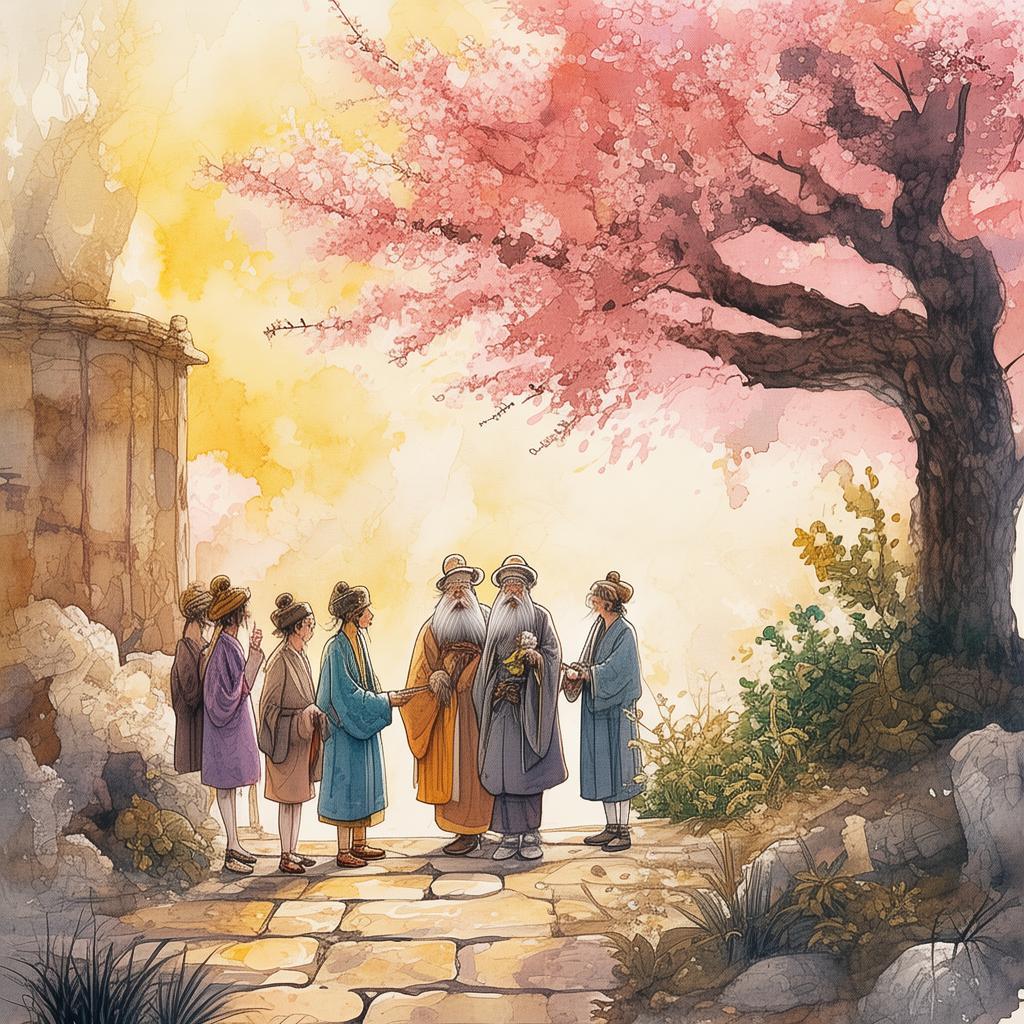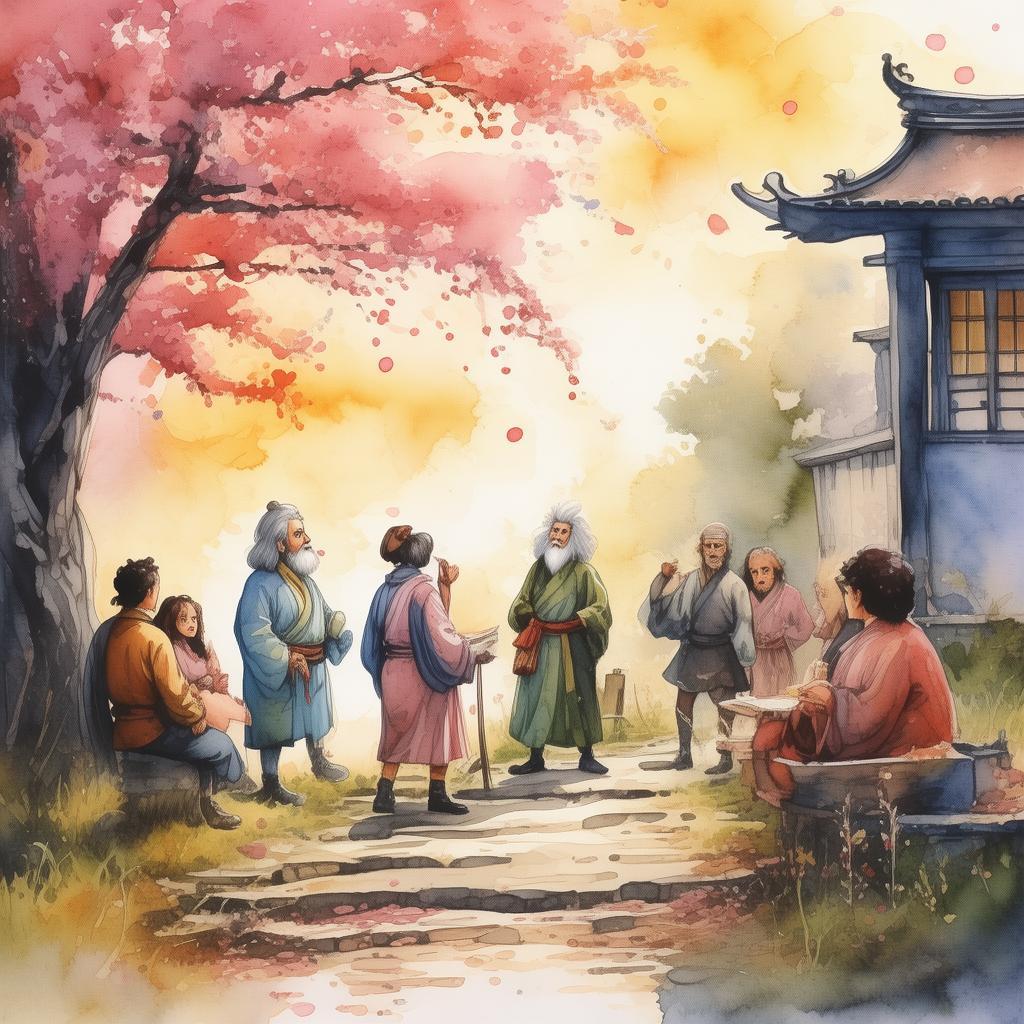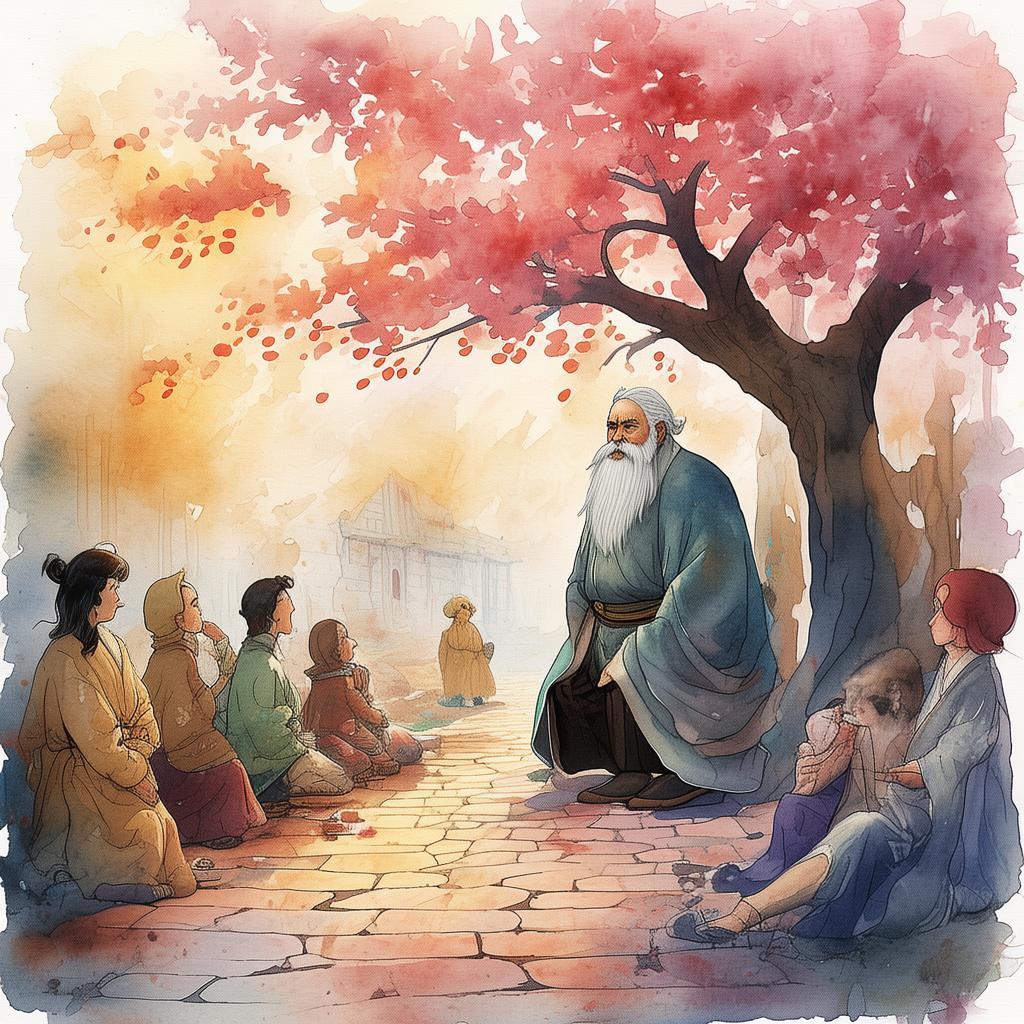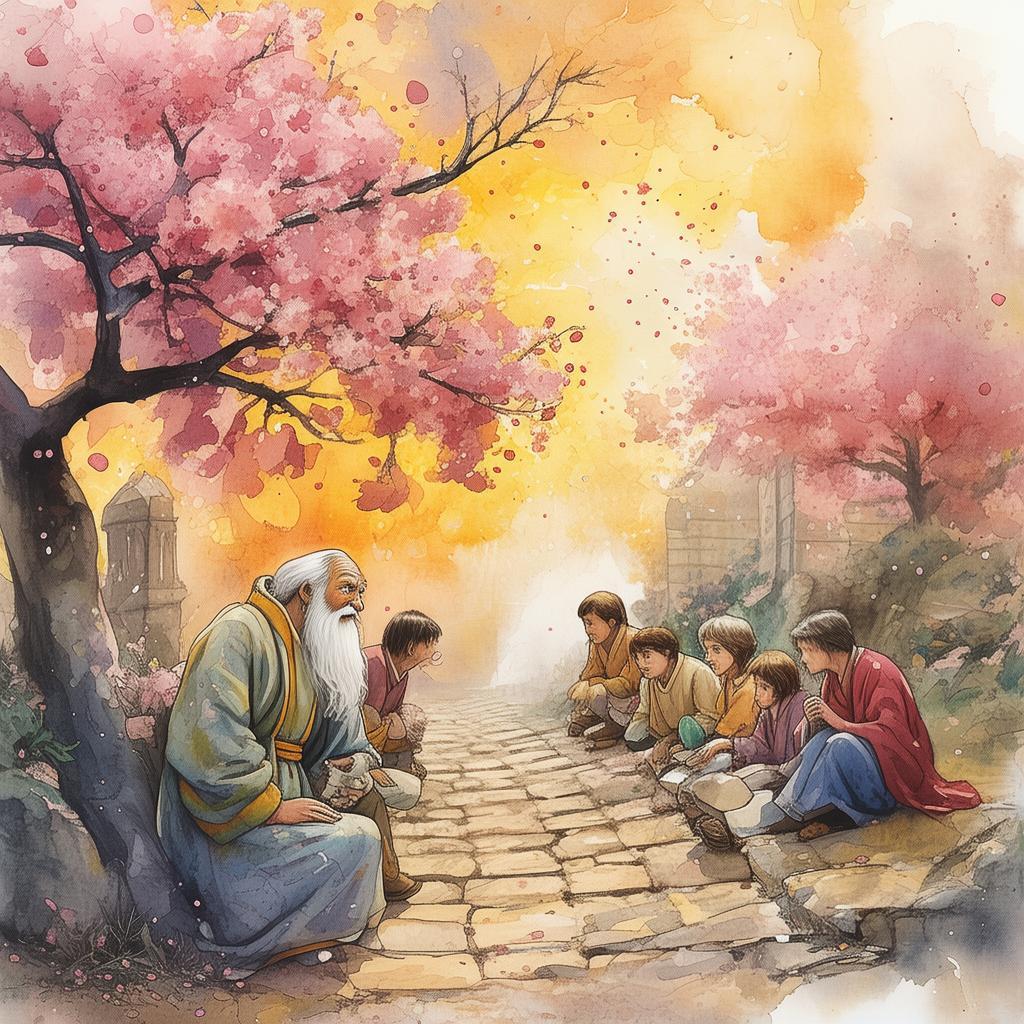Dragon's Lament: The Illusion of Power
In the heart of the ancient kingdom of Fenglin, where the skies whispered tales of old and the mountains held secrets deep, there lived a dragon named Yuan. Yuan was not just any dragon; he was the guardian of the skies, the embodiment of the storm, and the awe-inspiring force of nature that kept the kingdom's crops fertile and its people protected.
But Yuan was not content with his role. His scales shimmered with a greedy glint, and his heart was filled with an unquenchable thirst for power. He desired to be more than just a guardian; he wanted to be the ruler of Fenglin, to command the very essence of life and death.
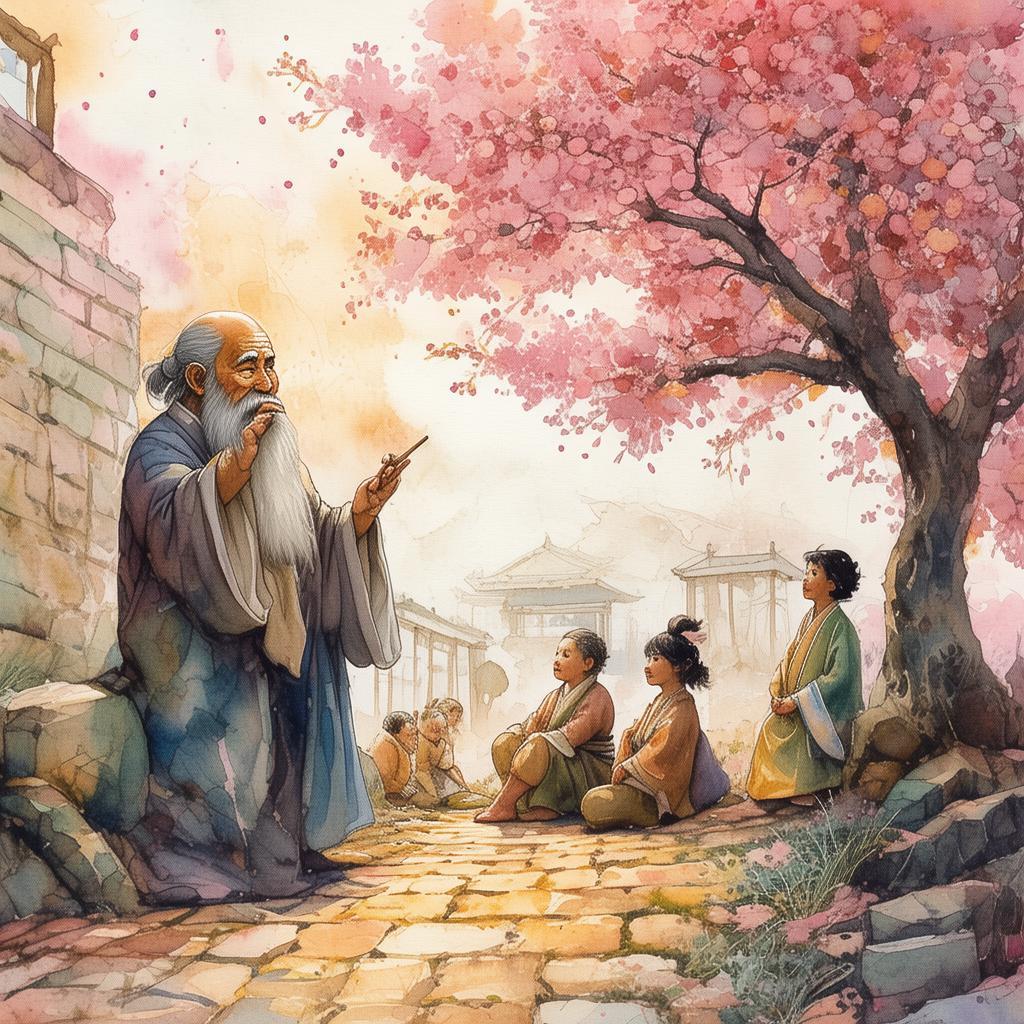
In the royal court, the playwright Xian was crafting a new drama, a story that would echo through the ages. The play was called "The Dragon's Tragedy," and it was about a dragon like Yuan, who sought to claim the throne of the kingdom. The play was a mirror, reflecting Yuan's own ambition, and as Xian wrote the final lines, he could not have guessed that his creation would soon become a tragic reality.
As the play was about to be performed, Yuan felt a strange connection to the character he saw in the script. The character's desire for power, his struggle against the forces of nature, and his eventual downfall resonated with Yuan's own soul. He felt as if he were watching himself, and for a moment, he wondered if perhaps the play was a premonition of his own fate.
The night of the play, Yuan attended the performance. As the curtain rose, the stage was set with a backdrop of the ancient kingdom, and the actors brought to life the characters of the play. Yuan was mesmerized, drawn into the story as if by an invisible thread. He saw the dragon in the play make the same mistakes he was making, the same decisions that would lead to his own downfall.
As the play progressed, Yuan realized that he was not just an observer; he was an integral part of the story. The dragon in the play was his alter ego, a reflection of his own ambition and the cost of his desires. The more he watched, the more he felt the weight of his actions pressing down on him.
The climax of the play reached a fever pitch. The dragon in the play, driven by his thirst for power, made a deal with the forces of darkness. In exchange for control over the kingdom, he would have to sacrifice his own soul. The audience gasped as the dragon was enveloped in shadows, his form dissolving into nothingness.
As the curtain fell, Yuan felt a chill run down his spine. The play was over, but the message lingered. He understood that power was an illusion, a fleeting shadow that could never be grasped. He realized that his own quest for power had been a fool's errand, a chase after something that could never be his.
In the days that followed, Yuan's scales lost their luster, and his eyes no longer held the fire of ambition. He began to understand the true meaning of his role as the guardian of the skies. He saw that power was not about control, but about protection and service.
The kingdom of Fenglin never knew the truth behind the play. They saw only the dragon, Yuan, who had learned the hard way the cost of his ambition. The play "The Dragon's Tragedy" became a legend, a cautionary tale about the dangers of unbridled ambition and the ephemeral nature of power.
And so, Yuan, the dragon who once sought to rule the kingdom, returned to his role as the guardian of the skies, a humbled and wiser creature, forever changed by the tragic play within a play.
✨ Original Statement ✨
All articles published on this website (including but not limited to text, images, videos, and other content) are original or authorized for reposting and are protected by relevant laws. Without the explicit written permission of this website, no individual or organization may copy, modify, repost, or use the content for commercial purposes.
If you need to quote or cooperate, please contact this site for authorization. We reserve the right to pursue legal responsibility for any unauthorized use.
Hereby declared.
